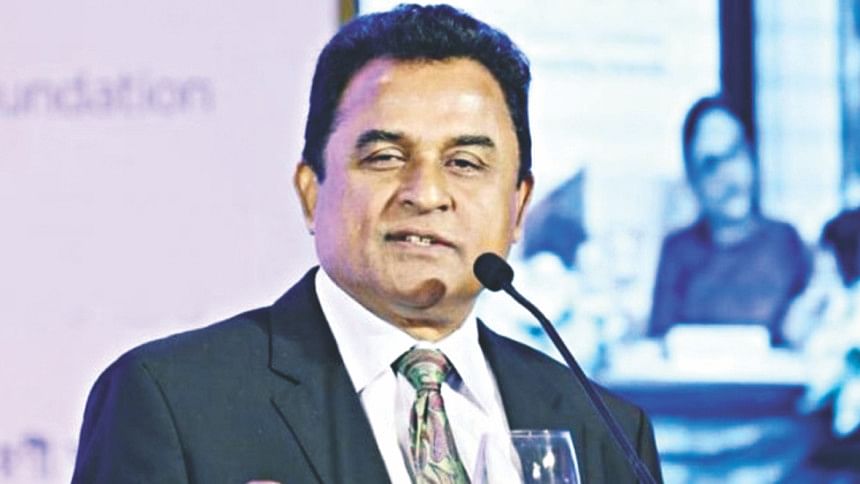No more handouts for state banks

Finance Minister AHM Mustafa Kamal yesterday trumpeted that state banks would no longer be handed taxpayers’ money to meet their capital shortfall, in yet another sign from the government of its intent to stop pampering the errant lenders.
“That is a thing of the past,” Kamal said after a meeting with the chairmen and managing directors of public bank at the planning ministry.
From now onwards, banks will not be recapitalised; they will have to sustain themselves.
The proclamation comes on the heels of Kamal’s move to not give a single penny to state banks last fiscal year despite an allocation of Tk 1,500 crore in the budget for the purpose.
No fund has been allocated for banks’ recapitalisation in this fiscal year’s budget too.
Between fiscal years 2009-10 and 2017-18 the government had injected a total Tk 16,016 crore of taxpayers’ money into the state-run banks -- without any tangible improvement in their governance and lending practices to show for.
The aim of the state-run commercial banks is to provide funds to the government from their profits and the government will spend the money for welfare activities.
But the banks were given money to meet their capital shortfall without any stringent performance improvement conditions, which defeats the purpose of their existence.
Kamal also reiterated the government’s decision to fix the interest rates for lending and savings at 9 percent and 6 percent respectively -- breaking the market mechanism and rendering the monetary policy toothless.
Asked whether the government can fix the interest rates in the market economy, the minister said: “The government will do whatever is needed to bring welfare for the people. Economics is a social science.”
He further said the central bank will issue a notice soon demanding the single digit interest rates.
Kamal also touched upon the issue of default loans. When he took charge of the finance ministry in January, he had announced that default loans would not increase by a single taka.
The banking sector’s total default loans then stood at Tk 93,370 crore. Six months later, the amount soared to Tk 112,425 crore.
Kamal though remains defiant that default loans did not increase at all since he took charge.
“If anyone says the amount of default loan is increasing, I will not accept it. Default loans did not go up in all banks.”
Curiously, he went on to link the increase in default loans in the first six months of the year to the failure to roll out a special rescheduling facility for defaulters for legal reasons.
Earlier on May 16, the Bangladesh Bank unveiled a special rescheduling policy, under which defaulters will be allowed to reschedule their classified loans by providing only 2 percent down payment instead of existing 10-50 percent.
A maximum of 9 percent interest rate will be charged on the rescheduled loans, which is much lower than the existing interest rate of 12-16 percent.
The tenure for repayment is 10 years with a grace period of one year, which is much longer than the existing duration for any loan at present.
The High Court though put a bar on implementing the new rescheduling policy until June 23, which the Supreme Court on July 8 extended by two months.
“You (journalists) will not say that the amount of default loans has increased once that package becomes effective,” he said, adding that the government is trying to make the rescheduling facility effective as soon as possible.
The amount of default loans will come down and the businesspersons will be beneficiaries once the facility is executed, he added.

 For all latest news, follow The Daily Star's Google News channel.
For all latest news, follow The Daily Star's Google News channel. 


Comments